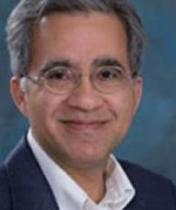Primary Training Faculty in Health Care Disparities Research
Anne Huml, MD
MetroHealth, Cleveland Clinic
Email: humla@ccf.org
Phone: 216.844.3133
Secondary Phone: 216.844.7874
Kidney
Interests: shortfalls in the quality of care; potential interventions for individuals transitioning from kidney transplant to dialysis

Ashwini Sehgal, MD
Case Metro
Email: axs81@case.edu
Phone: 216.778.7728
Kidney
Interests: equitable health care barriers; racial differences in response to medications; increasing organ transplantation by reducing disparities; community based research; quality improvement processes for mitigation of health disparitiesKidney

John Daryl Thornton, MD, MPH
MetroHealth
Phone: 216.778.5864
Kidney
Interests: behavioral interventions to improve health outcomes in the underserved; identifying barriers to organ donation; interventions to increase the rate of organ donation
Secondary Training Faculty Participating in Collaborative Projects in Health Care Disparities Research
- Jesse Schold, Ph.D. Kidney barriers to evaluation and wait listing for kidney transplantation; costs of living donation and their policy implications.
- Emilio Poggio, M.D Kidney use of performance measures and interventions to improve transplant outcomes and patient survival
- John F. O’Toole, M.D. Kidney utilizing electronic health records to mitigate barriers to donation in underserved populations.
- John R. Sedor, M.D. Kidney facilitated transportation as an intervention to improve transplant evaluation and listing in underserved populations.
- Dana Crawford, Ph.D. Kidney Genetic studies in underrepresented populations
Supporting Programs in Health Care Disparities Research
The Center for Reducing Health Disparities is supported by a NIMHD U54 grant. The Center has three long-term goals. First, we will create a durable academic-community partnership to develop innovative interventions that achieve measurable reductions in health disparities in the Greater Cleveland area. Second, we will promote successful intervention strategies that can be replicated in other regions. Finally and most pertinent to this application, we will train a new generation of health activists committed to eliminating health disparities. Dr. Ann Huml is an example of a young investigator, who trained in Health Disparities and joined our faculty.

